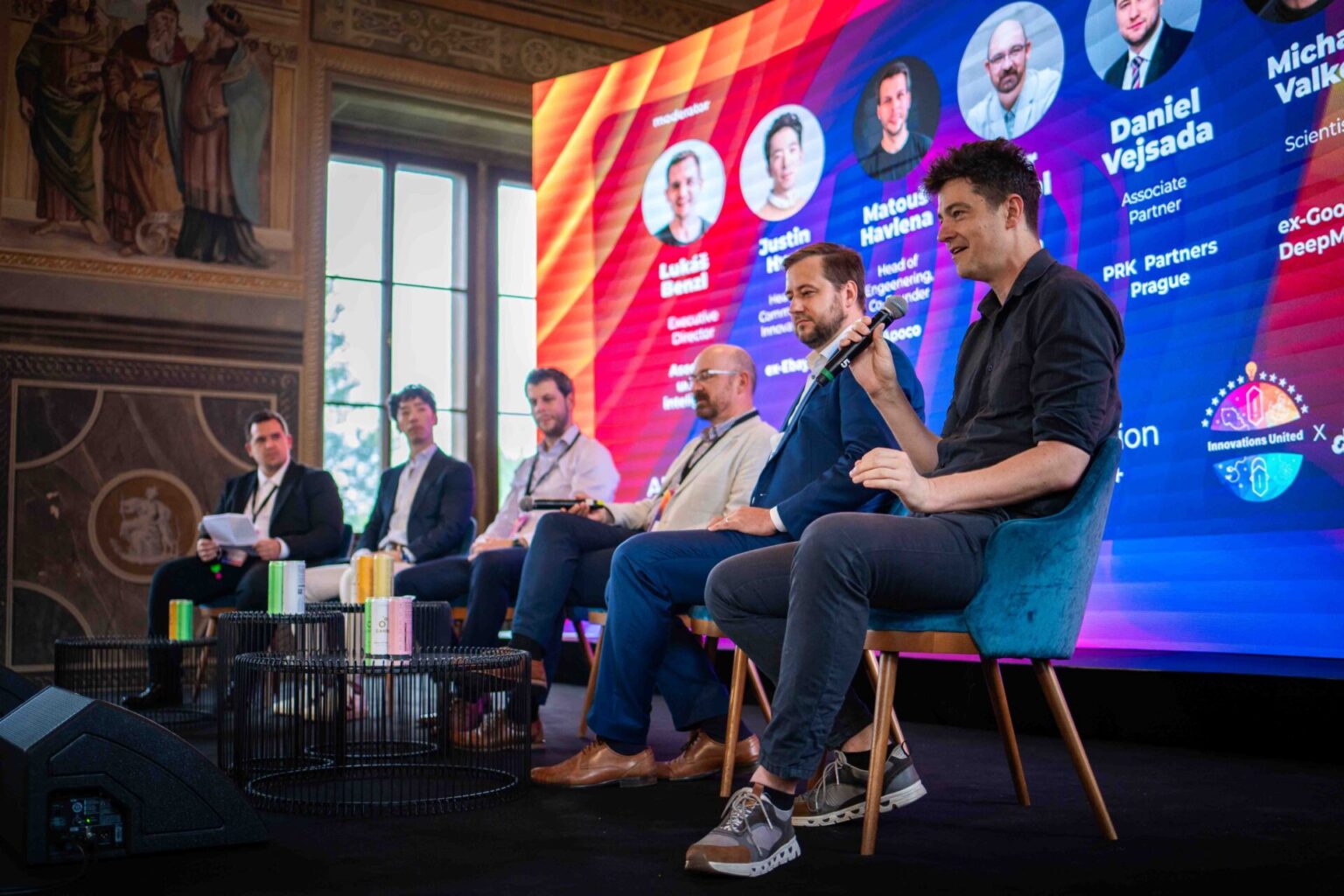A high-powered panel at Innovations United dissected the real-world state of AI: it’s ROI-driven, integrated into everyday business, and under regulatory scrutiny. While regulation is necessary, it must remain dynamic. Key challenges include transparency, practical application, cybersecurity threats, and government’s supporting (not controlling) role.
Moderated by Lukáš Benzel of the Czech Association of Artificial Intelligence, the panel titled “AI in Practice: Realizing the Potential, Innovation vs. Regulation” brought together experts across law, engineering, cybersecurity, and academia. The discussion illuminated what has shifted since last year—and what lies ahead.
Key Takeaways
- AI adoption is now ROI-focused, no longer experimental. Tools like ChatGPT and coding assistants are deeply embedded into workflows.
- Cybersecurity is both a battlefield and a beneficiary of AI—with attackers and defenders rapidly evolving.
- Legal firms are investing heavily in AI despite fears of job displacement.
- Transparency, explainability, and trust are now business imperatives, not just ethical ideals.
- Regulation is seen as necessary, but inflexible laws risk becoming innovation bottlenecks.
- Government should guide, not control, AI development, enabling markets while addressing social risks.
- The AI Act’s rollout is complex and slow in the Czech Republic, yet regulatory sandboxes offer hope.
- AI is increasingly integrated into daily life, from health tech to material science and navigation systems.
- Responsible AI is becoming a baseline, though investors still chase growth and scale first.
- Europe risks falling behind if its regulatory ambitions stifle innovation prematurely.
Insights from the Panelists
Justin Hwa (VC Perspective)
- AI’s value lies in ROI, not experimentation. Practical application > regulation.
- Investors prioritize scalability; responsible AI is a growing but secondary concern.
- Governments must support ecosystems but not lead development.
Matouš Havlena (Startup Co-founder, Apoco)
- AI tools increase engineering team productivity.
- Regulated industries are adapting to AI with internal ethics boards.
- Skeptical about regulatory sandboxes as silver bullets; supports some compliance exemptions for startups.
Petr Somol (Gen, AI Research Director)
- Cybersecurity arms race: both attackers and defenders use frontier models.
- Regulation isn’t a blocker; transparency is key to trust.
- Public sector’s best role is education and professional development.
Daniel Vejsada (PRK Partners, Attorney at Law)
- Legal industry is investing millions in AI.
- Regulation still lacks clarity; AI Act feels premature.
- Favors lighter regulatory touch to keep EU startups competitive.
Michal Valko (Stealth Startup, Chief Model Officer)
- Most impactful AI is seamlessly embedded in daily life.
- Need regulatory agility to keep up with tech velocity.
- LLMs must evolve to handle uncertainty; confidence intervals are a major gap.
Real Quotes, Real Talk
What does AI in practice mean?
“AI is no longer exploratory; it’s about impact, automation, and real gains.” — Justin Hwa
“We’re using AI agents daily for communication and GitHub workflows.” — Matouš Havlena
“AI has weaponized deception, but also enhanced defense.” — Petr Somol
“We’re building legal AI tools while debating if they’ll replace lawyers.” — Daniel Vejsada
“My students are launching AI companies in health, navigation, and more.” — Michal Valko
Final Thought
The AI landscape is evolving from shiny demos to deep enterprise integration. Yet regulation lags, and education is critical. Innovations UNited’s panel showed clearly: AI’s future must be guided by flexible frameworks, market insight, and public trust.
Stay tuned. Startup Disrupt is here to amplify voices at the edge of innovation.
